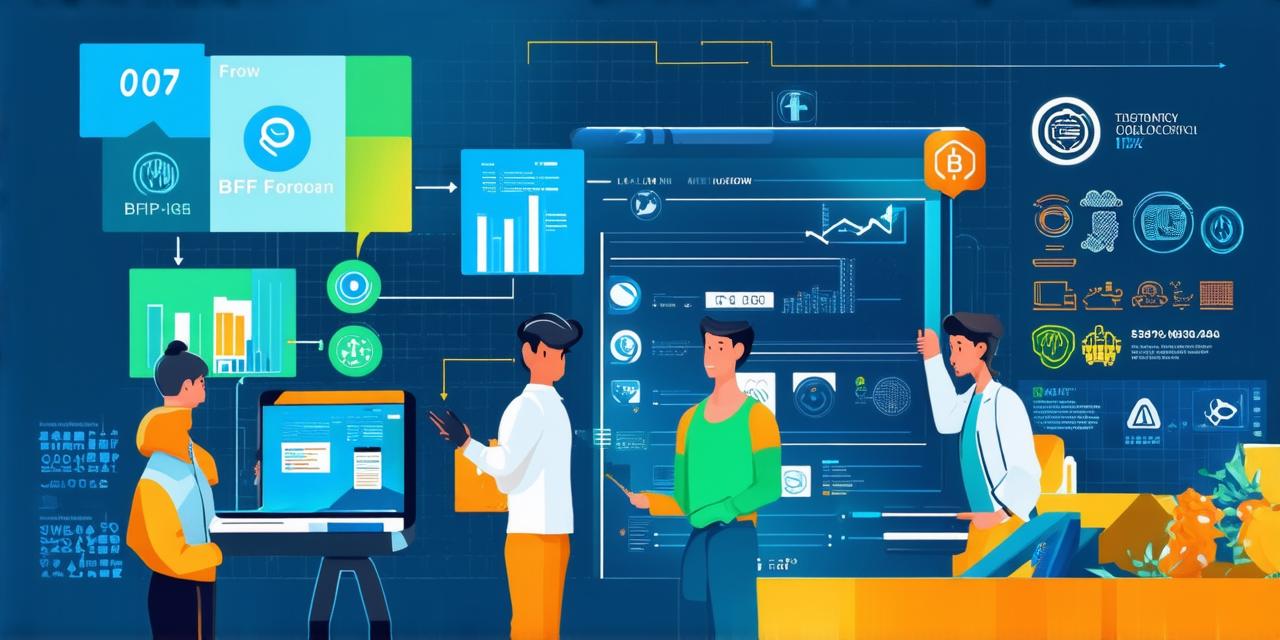Blockchain technology has revolutionized the way we think about data storage and transfer. With its decentralized and secure nature, blockchain software has gained immense popularity in recent years, particularly in the financial and healthcare sectors.
Understanding Blockchain Software
Blockchain software refers to a type of software that allows for the creation and maintenance of a decentralized database, commonly known as a blockchain. This software enables secure and transparent data storage and transfer through the use of cryptographic algorithms and consensus mechanisms.
The key features of blockchain software include:
- Decentralization
- Immutability
- Transparency
- Security

Real-Life Examples of Blockchain Software
There are numerous examples of blockchain software in action across various industries, including finance, healthcare, and supply chain management. Here are a few real-life examples:
- Cryptocurrencies: Perhaps the most well-known example of blockchain software is cryptocurrency, such as Bitcoin and Ethereum. These digital currencies operate on a decentralized network and use cryptographic algorithms to ensure the security and integrity of transactions.
- Smart Contracts: Smart contracts are self-executing agreements with the terms directly written into code. They can be programmed to automatically execute when certain conditions are met, such as the transfer of funds or the delivery of goods. Smart contracts have been used in a variety of industries, including finance, real estate, and supply chain management.
- Healthcare: Blockchain software has also found its way into the healthcare industry, where it can be used to securely store patient data and facilitate medical record sharing between healthcare providers. This can help to reduce administrative costs and improve patient care.
- Supply Chain Management: The supply chain management industry has also benefited from blockchain software, which can be used to track the movement of goods from manufacturer to end consumer. This can help to reduce fraudulent activities and improve product traceability.
How Blockchain Software Works
At its core, a blockchain is a series of blocks that contain data and are linked together using cryptographic algorithms. Each block contains a unique identifier (hash) that links it to the previous block in the chain. This creates an unbreakable chain of data that cannot be modified or deleted without disrupting the integrity of the entire network.
Case Studies in Blockchain Development
There are many examples of blockchain development in action across various industries. Here are a few case studies that illustrate the potential of blockchain technology:
- Walmart’s Food Traceability Initiative: Walmart has implemented a blockchain-based system to track the movement of food products throughout its supply chain. This system allows Walmart to quickly identify and recall contaminated products, which can help to reduce foodborne illnesses and improve product safety.
- IBM’s MediLedger Project: IBM has developed a blockchain-based platform called MediLedger, which is designed to securely store and share medical records between healthcare providers. This platform uses smart contracts to automatically execute medical record sharing and reduce administrative costs.
- Maersk’s TradeLens Platform: Maersk has developed a blockchain-based platform called TradeLens, which is designed to facilitate the secure and transparent transfer of goods throughout the supply chain. This platform allows for real-time tracking of shipments and can help to reduce fraudulent activities and improve product traceability.
Challenges and Limitations of Blockchain Technology
While blockchain technology has many potential benefits, it is not without its challenges and limitations. Here are a few examples:
- Scalability: One of the main challenges of blockchain technology is scalability. As more transactions are processed on a network, the time it takes to validate and verify those transactions can become slower, which can limit the throughput of the network.
- Regulation: Another challenge of blockchain technology is regulation. As the technology continues to evolve, governments and regulatory bodies may struggle to keep up with the pace of innovation and establish appropriate frameworks for its use.
- Energy Consumption: Blockchain networks require a significant amount of computational power, which can be energy-intensive. This has led to concerns about the environmental impact of blockchain technology, particularly in the context of cryptocurrency mining.
FAQs
Here are some frequently asked questions about blockchain technology:
- What is a blockchain?: A blockchain is a decentralized database that uses cryptographic algorithms and consensus mechanisms to ensure the security and integrity of data.
- How does blockchain software work?: Blockchain software operates in a decentralized manner, with transactions being validated and verified by nodes on the network using cryptographic algorithms and consensus mechanisms.
- What are some real-life examples of blockchain technology?: There are numerous examples of blockchain technology in action across various industries, including finance, healthcare, and supply chain management.
- How does a blockchain work?: A blockchain is a series of blocks that contain data and are linked together using cryptographic algorithms. Each block contains a unique identifier (hash) that links it to the previous block in the chain.
- What is a smart contract?: A smart contract is a self-executing agreement with the terms directly written into code that can be programmed to automatically execute when certain conditions are met.
- What is a decentralized database?: A decentralized database is a type of database that operates in a decentralized manner, meaning that there is no central authority responsible for managing or verifying transactions on the network.
- What are some challenges and limitations of blockchain technology?: One of the main challenges of blockchain technology is scalability, as well as regulation and energy consumption.
- What is a decentralized database?: A decentralized database is a type of database that operates in a decentralized manner, meaning that there is no central authority responsible for managing or verifying transactions on the network.
